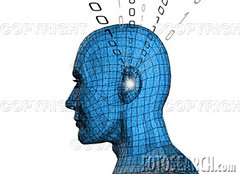
Reading the article by David Celdran is like opening a box from the future. It is indeed a possible scenario that is not far from what we have right now. Television technology has really evolved from the typical black and white programs with only music on the background. But as I look into it, there is not much to worry about the path digital technology is taking now. I believe that no matter how advanced and influential television technology is, there would always be someone to balance the scene. Even during the early times, there are already people who during their time are considered a geek, or a techie person, who has these ideas, which seems to be advance and futuristic. And that is why we have these technologies now, because of those geniuses from the past.
Having the screenager generation is like taking care of a new breed of plants. We may be too worried about how to take good care of them, we may be afraid because their stem holds a lot of thorns and we are afraid to touch them; it may seem that we are curious about how their fruit would look like, if we can eat them, or will their fruits harm us with poison. And it is sometimes ironic, because we just don’t realize that we are already part of those breeds, in fact, we are of the same breed of plants. It’s just that some would like to stay under the sun, and some would just prefer to stay in the damp. As they say, different folks, with different strokes.
There is nothing much to worry about the profitability of television. It was mentioned on the article that there would come a time when digital television would change all that and that viewers can just download contents and will be able to skip through commercials which would make the bread and butter of networks and ad agencies inefficient. I certainly do not agree on this statement, because even now the commercial people, because of their ingenuity have made a way for televiewers who use to switch channels avoiding commercial gaps. The solution, they started to put pop-out commercials at the bottom of the television screen even during the program itself, by then, there is no way for televiewers to not to see these advertisements. And who would even dare to skip our advertisements now adays, when they seem to be even more entertaining that the program itself. Television commercials have learned how to survive and evolve as a form of entertainment itself. They have learned how to touch the televiewers hearts, make them laugh, and make them cry, and so on. As the technology advances, so were the ideas and strategies of commercial agencies and the program and station managers. I do believe that we all co-exist and will continue to take part in the advancement of our technology and economy as well.
These screenagers, as they become familiar with these systems as early as now, would be the next geniuses of our society. As for the idealistic and traditional member of the society especially from the early generations, have nothing to worry too. Don’t they know that even today there are still Elvis fanatics, not only those who belong to the same era as Elvis’ but there are younger generations who were influenced by their granddads or fathers. Even Mister Charlie Chaplin would still be proud about our generation having Mr.Bean as his legacy. That is why instead of having to worry too much and entertain paranoia, it would be better to develop positivism towards the future. The article even discusses family ties. That because of these digital technologies, family bonding while watching television would diminish. Why don’t we take a look at dad and children who plays computer games together at home; how about the sing-along games in Philippine television, where families sing along with each other while watching the show. The Philippine game show quizzes where families tend to test each other’s skills in general trivia. After all, these are all on our hands. We can actually take control of these. If we would only be determined to create more television shows and programs that would benefit and encourage the families to watch together. We could continue to create quality program that goes with the culture and jive both with screenagers’ definition of what is “cool” and the parents’ definition of “sense” as well.
This is my own composition which I wrote for our Media Business Paper (Paper 5) under Mrs. Mel Estonilo. To read the reference of this paper read David Celdran's The Screenager Generation.



No comments:
Post a Comment